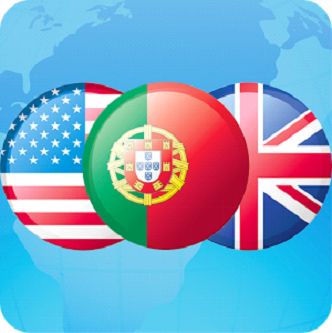Top Tips for Perfect English to Portuguese Translation Provider
Achieving extraordinary English to Portuguese translation requires even more than plain word-for-word conversion; it demands an understanding of etymological details and cultural nuances. Picking qualified translators who are both fluent and culturally mindful is paramount - English To Portuguese Translation. What various other important aspects should be thought about to boost translation top quality even more?
Understand Cultural Nuances
When translating from English to Portuguese, realizing the social nuances is essential for generating a precise and resonant message. The Portuguese-speaking world varies, including various areas, each with its distinctive custom-mades, idioms, and social standards. A translator has to be attuned to these subtleties to make certain that the translation not just communicates the designated message but also reverberates with the target audience.
For example, idiomatic expressions in English might not have straight counterparts in Portuguese. An expression that functions well in one culture can result in confusion or misconception in one more. Comprehending regional dialects and variations, such as those discovered in Brazil and Portugal, is important; words might hold various connotations or uses depending upon the locale.
Additionally, cultural context plays a significant function in translation. Consideration of historic, social, and political variables can affect language options and tone. This cultural recognition allows for the adjustment of content that straightens with regional values and assumptions, consequently enhancing the performance of communication. Ultimately, a detailed understanding of social nuances is essential for providing translations that are not only linguistically accurate yet likewise culturally pertinent and engaging.
Choose Qualified Translators
Picking qualified translators is a crucial action in guaranteeing the precision and top quality of English to Portuguese translations. A translator's proficiency not only encompasses language efficiency but additionally a deep understanding of cultural context, idiomatic expressions, and industry-specific terms. When picking a translator, prioritize those with official training in translation researches or linguistics, along with relevant certifications that show their specialist skills.
Experience plays an essential role also; translators focusing on particular fields-- such as legal, clinical, or technological-- are most likely to deliver exact translations customized to the sector's requirements (English To Portuguese Translation). Furthermore, consider their portfolio and client testimonials to assess their previous work high quality and reliability
Engage translators who are native Portuguese audio speakers, as they possess an innate understanding of the language's subtleties and regional languages. This familiarity improves the translation's authenticity and effectiveness.
Usage Contextual Referrals

When converting, it is necessary to acknowledge idiomatic expressions and cultural recommendations that might not have direct equivalents in Portuguese. Certain expressions that reverberate in English could call for adaptation to convey the very same emotional weight or social significance in Portuguese. Employing contextual references can assist translators pick the right terminology and style, consequently improving the general clarity and effect of the translation.

Emphasis on Localization
Localization plays an essential duty in Our site the translation procedure from English to Portuguese, as it ensures that the translated material is relevant and culturally appropriate to the target audience. English To Portuguese Translation. This process goes past plain translation; it entails adapting the material to the social, social, and linguistic subtleties particular to Portuguese-speaking regions
Comprehending neighborhood idioms, personalizeds, and preferences is essential. As an example, particular expressions or recommendations that resonate with an English-speaking target market may not have the very same influence on Portuguese audio speakers. It is necessary to take into consideration regional variants, such as Brazilian Portuguese versus European Portuguese, as each has unique vocabulary and stylistic differences.
Furthermore, localization incorporates formatting, such as day and time formats, money, more tips here and measurement devices, which can differ dramatically across societies. This attention to information fosters a link with the audience, improving engagement and comprehension.
Furthermore, utilizing local languages and jargon can provide credibility, making the content much more relatable. By concentrating on localization in English to Portuguese translation, companies can properly communicate their message, develop trust with their target market, and inevitably achieve their desired objectives.
Evaluation and Edit Extensively
Extensive testimonial and modifying are crucial action in the translation process, especially when converting English material right into Portuguese. This stage ensures that the translated product not only preserves the original meaning however additionally resonates well with the target market. Given the linguistic and cultural subtleties, a meticulous strategy to examine and editing is vital.
Begin by contrasting the initial English message with the Portuguese translation, paying close focus to terminology, tone, and context. It's critical to make sure that idiomatic expressions and social references are appropriately adjusted for the Portuguese audience. Engaging a 2nd translator or an indigenous audio speaker for this testimonial procedure Homepage can provide indispensable insights and catch mistakes that might have been forgotten.
In addition, look for grammatical accuracy and stylistic uniformity throughout the record. Typical difficulties such as false cognates or ambiguous expressions ought to be dealt with to avoid misinterpretation.
Verdict
Accomplishing phenomenal English to Portuguese translation solutions requires an extensive approach that incorporates understanding cultural nuances, picking qualified translators, utilizing contextual referrals, prioritizing localization, and conducting detailed evaluations and edits. Each element plays a crucial duty in making sure that translations are not only exact however additionally resonate with the target market. By carrying out these strategies, companies can enhance the performance of their communication and cultivate a deeper link with Portuguese-speaking audiences.
Accomplishing extraordinary English to Portuguese translation calls for more than plain word-for-word conversion; it demands an understanding of linguistic details and cultural subtleties.Picking qualified translators is an essential step in making certain the accuracy and high quality of English to Portuguese translations.Thorough evaluation and editing and enhancing are important actions in the translation process, specifically when converting English material right into Portuguese.Begin by contrasting the original English text with the Portuguese translation, paying close focus to tone, context, and terms.Attaining outstanding English to Portuguese translation services demands a comprehensive method that includes understanding social subtleties, selecting qualified translators, using contextual referrals, prioritizing localization, and conducting complete testimonials and edits.